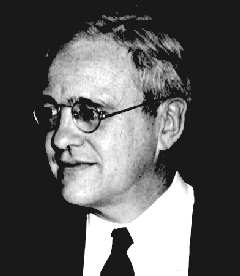 Like fellow LHB blogger Dan Ernst, I have a thing for New Deal lawyers and enjoy their oral histories and memoirs. My dissertation involves the lawyers who helped administer federal-state public assistance ("welfare") programs, a lesser known legacy of the Social Security Act. I argue that these lawyers tried to bring the discourse of rights and law to the lawless realm of public assistance administration. They also, apparently, had a lot of fun. Here are a few choice excerpts from the memoir of Thomas H. Eliot, a Labor Department lawyer who helped draft the Social Security Act and later became the first General Counsel to the Social Security Board.
Like fellow LHB blogger Dan Ernst, I have a thing for New Deal lawyers and enjoy their oral histories and memoirs. My dissertation involves the lawyers who helped administer federal-state public assistance ("welfare") programs, a lesser known legacy of the Social Security Act. I argue that these lawyers tried to bring the discourse of rights and law to the lawless realm of public assistance administration. They also, apparently, had a lot of fun. Here are a few choice excerpts from the memoir of Thomas H. Eliot, a Labor Department lawyer who helped draft the Social Security Act and later became the first General Counsel to the Social Security Board.On female companionship:
There were hardly any female lawyers on the scene. There were very few female lawyers, period. . . . In 1936 I completed the task of hiring ninety lawyers for the Social Security Board's legal staff: just three of them were women. . . . However, young ladies did not have to be members of the bar to attract the attention of young legal eagles of the New Deal.Eliot proceeds to discuss a house that he and fellow "eagles" called "the Nunnery," where lived six youthful and attractive graduates of Smith, Bryn Mawr, and Vassar. "Enthusiastic[]" square dancing ensued. The residents were also treated to a "plaintive" recorder serenade and the "jovial[]" threat of a house fire, complete with singed grass.
Of course, the work of a New Deal lawyer could also be stressful. Once, Eliot recalled, "a young attorney who hadn't had a raise in salary brought a gun to the office" ("whether to shoot me or himself I never learned"). Eliot built morale by organizing a General Counsel's office softball team:
Nobody had to play but many were glad to, and others came to cheer at our after-hours or weekend contests. As I wrote: "Lots of fun this morning [April 11, 1937] playing baseball [sic]. . . . We lost to the mimeographers, but should improve with practice!" We didn't; but we did manage to defeat our keenest rival, the Bureau of Unemployment Compensation.It looks like Eliot had the last laugh. While many historians have remarked on lawyers' power and influence in this important era, I have yet to encounter the phrase "a Mimeographer's Deal."
Source: Thomas H. Eliot, Recollections of the New Deal: When the People Mattered (Boston: Northeastern University Press, 1992).
Image: Thomas H. Eliot